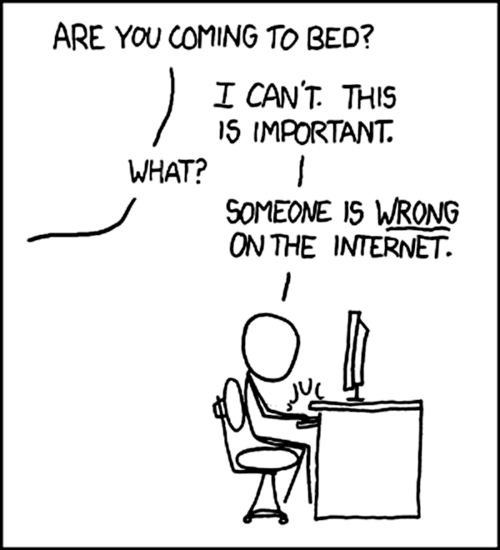
This week I spent a couple of days driving across the Heartland, from Kansas City back to my home in Washington, DC. I hadn’t packed any music to listen to, so I ended up listening to about 16 hours of radio.
I don’t normally listen to much radio, and I’m a terribly fickle listener. I hate commercials, and I’ll change the station whenever I start getting bored. In the course of an hour, I probably listened to at least half a dozen stations.
Making my way through the Midwest, I discovered that a huge number of these radio stations are home to far-right talk shows. I listened in astonishment as men in studios spouted racist vitriol against Muslims, calling them rapists, murderers, savages. I learned that white civilization is being overrun by barbarous Arabs and Africans. It was almost hypnotizing. As if I had been transported back to the 1930s, I was listening to real, home-grown American fascism.
At first, I thought that these guys were probably local radio personalities, going to extremes to boost their ratings. But soon I realized that these are major, syndicated radio hosts. Sean Hannity of FOX News. Rush Limbaugh. These men have enormous platforms. For many Americans, they are a primary news source.
And it got me to thinking. How different am I, really, from those millions who listen to far-right radio? I tried to imagine a world in which FOX News was the most progressive source of news that I regularly consumed, and extreme right outlets like Breitbart and Sean Hannity were main ingredients in my intellectual diet. What would my worldview be like? Would I be any different from the millions of other Americans that watch MSNBC as their primary source of truth, supplementing it with Huffington Post and TruthOut?
Most of us are locked into a very narrow worldview that refuses to listen to the concerns of those beyond our ideological tribe. We accept information from our preferred sources, and we shut it out from sources that have a different ideological take. While some of us work very hard to vet our information and seek the truth, most folks on both sides are generally content to accept whatever the current talking points are for their side in the culture wars.
This is the part of the essay where you might expect me to start making an appeal for “civility” – and maybe that is what we need. But “civility” feels like too dainty of a word for the kind of challenge we are facing at this point. We are in a spiritual warfare, and none of the major ideological camps seem to realize that we’ve been captured by the forces of deception and division. Truth exists, but it’s mostly absent from the outrage industrial complex of cable news and agenda-driven blog sites.
What does it look like to be followers of the Lamb in a society that is engaged in such spiritual, emotional, and physical violence? What does it mean for us to be publishers of truth in a world where “truth” is often code for fundamentalist dogma (right-wing or left wing) that is used to bludgeon people – often the most vulnerable?
It’s disturbing and humbling to admit it, but we have all been captured to some extent by the forces of confusion, hatred, and self-righteousness. Regardless of how correct our analysis is, we have all fallen short of the Holy-Spirit-filled love, justice, and compassion that Jesus calls us to. I know that I have.
What does it mean to be a friend of Jesus in the midst of all this mess? What does it look like to lead a life full of hope, tenderness, and mercy? How can we truly love the people around us, especially those who believe all the wrong things?
Our struggle is not with human beings, but with the hatred, fear, and alienation that has so thoroughly insinuated itself into our public life. As followers of Jesus, we are called to enter into this struggle as loving agents of reconciliation. In the midst of a culture war, we have an opportunity to engage in a deeper battle of meaning, healing, and restoration.
We’re all so broken, this kind of transformation seems impossible right now. Yet in Jesus, we encounter hope that extends beyond the present moment. It’s a hope that points us to struggle nonviolently for a restored creation. It’s hope that enables us to reach out to others, beyond our ideological camps, trusting that Jesus will be present among us.
Whoever you are, whatever you believe, and whatever ideologies you’re invested in right now: I love you. We may need to struggle with one another. And maybe that’s OK. While we do, let’s pray for one another. May God show each of us how to live more deeply rooted in love, truth, and compassion. May God use each of us as instruments of healing and reconciliation in a dark and broken world.